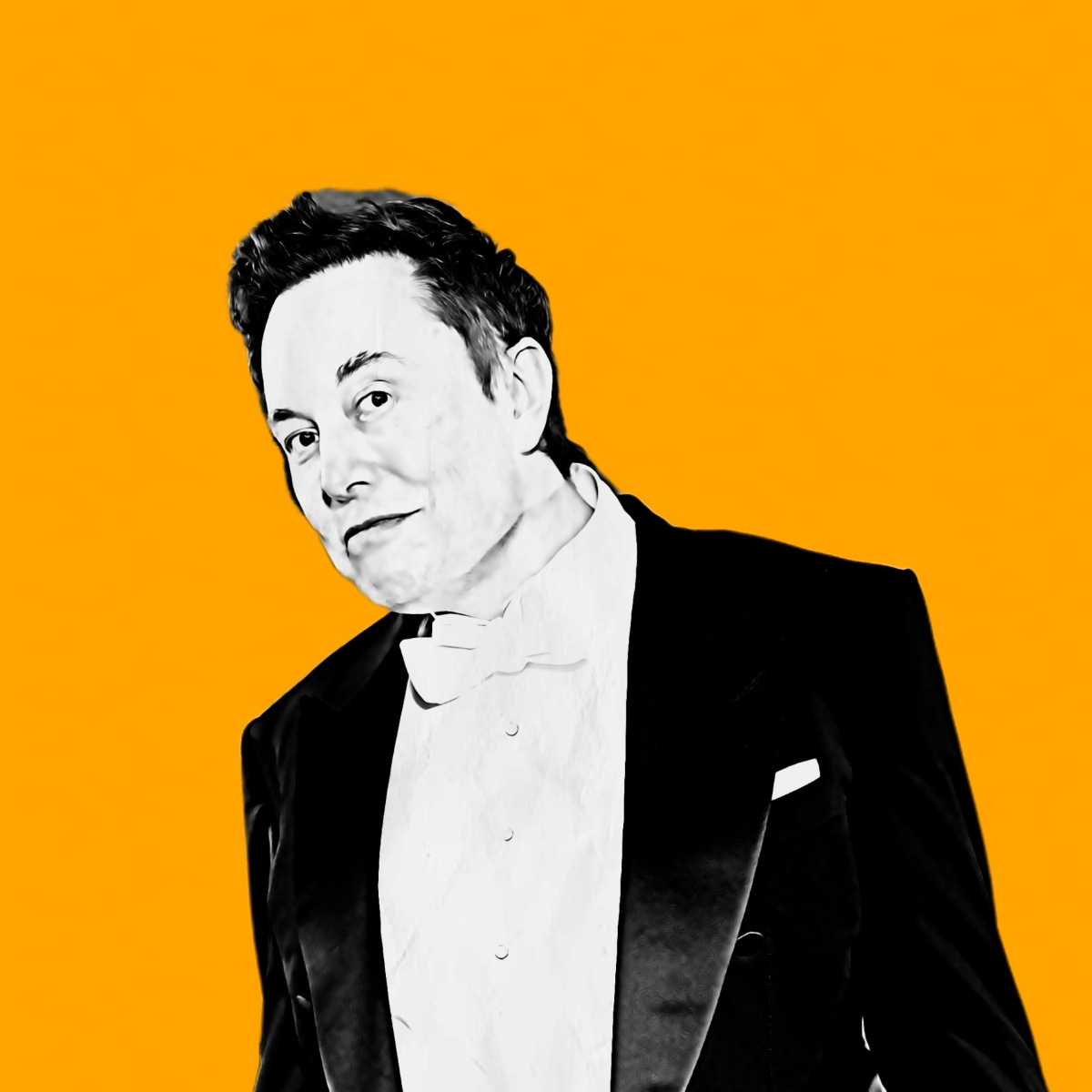When the world’s richest man, Elon Musk, appeared as the host of Saturday Night Live on May 8, 2021, I was watching along with a bunch of Martin Shkreli fans. They were congregating together, virtually, on a Discord server and closely following both Musk’s performance and the related price movements in their Dogecoin investments. Both ended up being underwhelming.
Was this weird? Not really. The Venn diagram of Martin’s fans, who seem to include a lot of scrappy hustler types, and Musk’s fans is a circle. Spending sometimes hours a day hanging out with each other on social media platform Discord, the Martin group sometimes joked that they were a “cult.” They had all been drawn to Martin’s live streams, which he broadcast regularly from his Murray Hill apartment back before he was sent to prison, like moths to a campfire. Even without his participation, they were happy to hang out with each other.
Luckily for Martin, who had enough legal problems to worry about without accusations of being a “cult leader” in the mix, his fan group was far too unruly to achieve any firm organizational structure. They were difficult to categorize politically: At best, one could say they were mostly sort of centrist. Some veered toward libertarianism, or dabbled in anarchy. Two even met each other in person, by coincidence, at an “anarchist club” meeting in Manhattan.
The only things that seemed to bind them was subversiveness, an interest in trading stocks and crypto, annoyance at elite institutions, and a fascination with Martin. Many did not support the drug price increase that made Martin, overnight, a global villain in 2015. Some even struggled with health care conditions and costly medications and had come to him at first to vent their frustrations. But they all found justifications for forgiving him.
Musk fans, or more often called “stans,” are far too numerous to come together on a single Discord server to chat; rather there are many Musk-focused servers on Discord to choose from. While Martin’s following might be like a quirky, renegade cult, Musk’s is more like a full-blown religion.
With more than 100 million Twitter followers, it’s also safe to say that Musk’s fans represent a much wider cross section of society than Martin’s. The overlap comes into play with some semi-centrist anti-authoritarian types, tech nerds, and “reply guys” (as well the more disturbing “incels,” or men who define themselves as being unable to attract romantic partners, and who are extremely hostile toward women).
Both Musk fans and Shkreli fans were also generally pro-crypto. Musk’s embrace of Dogecoin, a cryptocurrency started as a joke based on a popular meme of a Shiba Inu, did much to endear him to the crypto crowd. Meanwhile, when Martin was released from prison and transferred to a New York halfway house this May, he immediately started engaging with the crypto world and busying himself with projects.
A few years ago, most people would have found it ridiculous to draw comparisons between Martin and Elon (and maybe some still would). After all, Martin is best known for being mired in scandal. After jacking up the price of a toxoplasmosis medication, Daraprim, by 5,000% in August 2015, he became known throughout the world as the “Pharma Bro.” Then just four months later, he was arrested on securities fraud charges, and later convicted and sent to prison.
He now is persona non grata, banned from the drug industry, from dating apps and at least nominally from Twitter (after a weird trolling campaign against a female journalist went way too far). Musk, on the other hand, is worth nearly $240 billion, and helms the world’s largest electric car maker, Tesla, as well as SpaceX, the only private spacecraft maker that has ferried astronauts to the International Space Station. His accomplishments are massive and tangible, and he has been generally viewed as one of contemporary society’s most brilliant industrialists.
But public opinion of Musk has taken a Shkreli-like dive over the past year, making the resemblance between their personalities more clear. Although always somewhat polarizing in part because of his social media antics — remember when Musk called a hero diver who rescued boys in a flooded cave a “pedo?” — Musk is now solidly in the “much hated rich guy” camp.
His recent tumultuous takeover of Twitter, starting with the offer, and then him suddenly backing out of the deal, drawing a lawsuit from the social media platform, and then just as suddenly going through with the purchase after all, have only accelerated the transition. While Musk has some understandable reasons for shifting gears midstream, namely rapid shifts in the economy, journalists quipped that the whole thing must have been an expensive charade. And with that, came assertions that Musk wasn’t so much a “genius” as he was a “bullsh*t artist.”
(When he finally went through with the deal after all in October 2022, opinions did not change for the better.)
“Has anyone done any surveys about Elon Musk,” Adam Davidson, co-founder of NPR’s Planet Money, tweeted in July. “In my very anecdotal experience, he went from near-untouchable among kids — one of the great heroes of our age (my son is 10 and was a massive fan) to an embarrassing guy you don’t talk about.”
He added: “My anti-Musk conversion happened long ago. But for a long time, I found few people who shared the view that he was a glib cryptoconservative who said thinly thought-through things without rigor. Now that seems to be the consensus (anecdotally).”
A polling company, Change Research, tweeted a chart in April that seemed to confirm Davidson’s sentiment. While support for Musk among Republicans appeared to grow slightly from January 2020 to December 2021, his favorability among Democrats more or less fell off of a cliff, according to the company’s research. Support among “pure independents” dropped significantly, too.
Maybe aspirationally, Martin has always generally admired and likened himself to Musk. But the two characters’ social media habits and penchant for thumbing their noses at authority are similar enough to inspire comparisons from other observers. “Never go full Shkreli,” people joke when opinion of Musk dips. (The comment is a reference to the movie Tropic Thunder, where Ben Stiller, who plays an action star, is advised by Robert Downey Jr. to never to go “full r*tard” if acting in a drama.)
On that note, a few years ago, when Martin was sitting in a federal prison, envisioning Musk driving himself down a similar embattled path, he wrote me an email describing advice he would give the vastly wealthy industrialist. I posted it on Medium initially, but I’ll include a slimmed-down version of it here, for your enjoyment.
For Musk’s sake, hopefully his many billions of dollars will provide enough insulation from negative public opinion, and related adversarial legal actions, that he won’t quite end up in the same shoes as Martin. But who can say at this point. Ten years ago, few people could have guessed that we would end up with a reality TV star (Donald Trump) as president, or watch our economy nearly shut down by a global pandemic. The world can change fast these days.
Martin Shkreli’s advice to Elon Musk
1. Don’t engage the media.
They’re not your friend. They’ll distort your words. They generally want to see you fail. Pick one reasonable journalist whom you trust to communicate with. The others will hopefully look up to that fair person as the model for reason and you will enjoy a more harmonious existence with the press. [I guess that ended up being me, who also became his girlfriend.]
Even if the media continues to treat you poorly, ignoring (most of) them instead of harassing them is what they deserve, will give you some psychological satisfaction, and most importantly, free up time to focus on your businesses.
2. Don’t be ambiguous.
With everyone laser-focused on every word you say, say less. Make sure everything you do say is unable to be misinterpreted. Intentional misinterpretation has backfired on me a half a dozen times.
3. Don’t lie.
Entrepreneurs are expected to have the optimism gene. You can’t build large companies without being sanguine. The rest of the world isn’t like us. They’re cynical, they’re jaded, they can’t do the impossible. But, truth is important. When you say you hired Goldman Sachs, even if you had 50 conversations with Goldman and the CEO himself told you he will help, until you have an engagement letter, you haven’t hired Goldman Sachs.
4. You can be defiant without being desperate.
Standing up for yourself, your company, and your actions is clearly something I strongly believe in. Rubbing salt in your detractors’ wounds is not only humorous and fun, it brings attention to your cause/company/product, solidifies employee support, and gives you some psychological relief. However, your job is to run the company and make it successful. That is how you win the argument.
It will make you look desperate and foolish to erratically correct every misstatement or misunderstanding that’s out in the marketplace. You have a very richly valued company, so there is nothing to be desperate about. There is an old saying that is rumored to be a favorite of Warren Buffett: “You can always wait until tomorrow to tell someone to go f*ck themselves.”
5. Keep doing the impossible.
You’ll never stop being a great company-builder. There’s only a handful of people on the planet who could have created this company from scratch. You have so many options to keep growing this company. Don’t lose faith that you’re one-of-a-kind.













